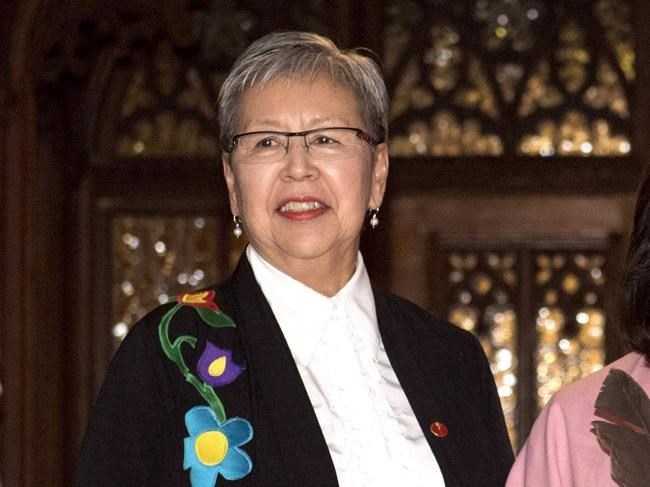Retired senator Lillian Dyck says she was "stunned" to see reports last fall questioning the Indigenous heritage of former judge Mary Ellen Turpel-Lafond, whose story she had related to, and whose career she had celebrated.
Dyck, who is Cree and Chinese Canadian, says she thought "hallelujah" as Turpel-Lafond became Saskatchewan's first Indigenous female judge in 1998.
It was "wonderful" to know Turpel-Lafond had overcome the numerous challenges Indigenous women disproportionately face in their personal lives and careers, says the professor emeritus in psychiatry at the University of Saskatchewan.
"And then I found out, it was all a facade."
Dyck says a CBC investigation convinced her that Turpel-Lafond lied about being Indigenous, causing real harm by exploiting the identity of Indigenous women, of whom many are vulnerable and underserved, and depriving them of opportunities.
"Canadians know now (Indigenous women) are more likely to face violence, more likely to be murdered, made missing, and she's used that identity to enhance her curriculum vitae. And to me, that was like the lowest thing you could do."
Dyck is among the signatories of a statement released this week calling on 10 universities to revoke the honorary degrees conferred on Turpel-Lafond.
Eight of the 10 schools the Indigenous Women's Collective singled out have confirmed they're taking steps to review the matter.
Reached by phone on Wednesday, Turpel-Lafond declined to comment on the calls for her honorary degrees to be revoked or the universities' review processes.
She previously told the CBC that while she was growing up she didn't question the biological parentage of her father, who she has said was Cree.
Turpel-Lafond served as British Columbia's representative for children and youth and, until last month, she was a tenured law professor at the University of sa国际传媒
Until last year, she also served as the academic director of the Indian Residential School History and Dialogue Centre at the university.
In addition to the CBC investigation, Dyck says Turpel-Lafond's "evasion" in response to questions about her heritage have contributed to Dyck's conclusion that she is not Indigenous, with status recognized by the federal government.
"It would have been so easy for her to prove her identity. If she's claiming to be a treaty Cree Indian, all she had to do was pull out her treaty card."
Along with revoking Turpel-Lafond's honorary degrees, Dyck says she wants to see the universities take a stand, stating publicly it's wrong and unacceptable to pretend to be Indigenous, and there should be consequences, such as termination.
The University of Regina along with Carleton, McGill, Brock, Royal Roads, Mount Saint Vincent and St. Thomas universities have all confirmed they've taken steps to look into Turpel-Lafond's case.
A statement from Simon Fraser University says a committee has been formed to put a policy in place that includes procedures for revoking an honorary degree.
Once that policy is approved, it says the university will determine the next steps.
Responses haven't been received from Thompson Rivers and York universities.
This report by The Canadian Press was first published Jan. 19, 2023.
Brenna Owen, The Canadian Press



